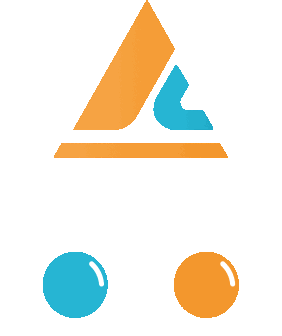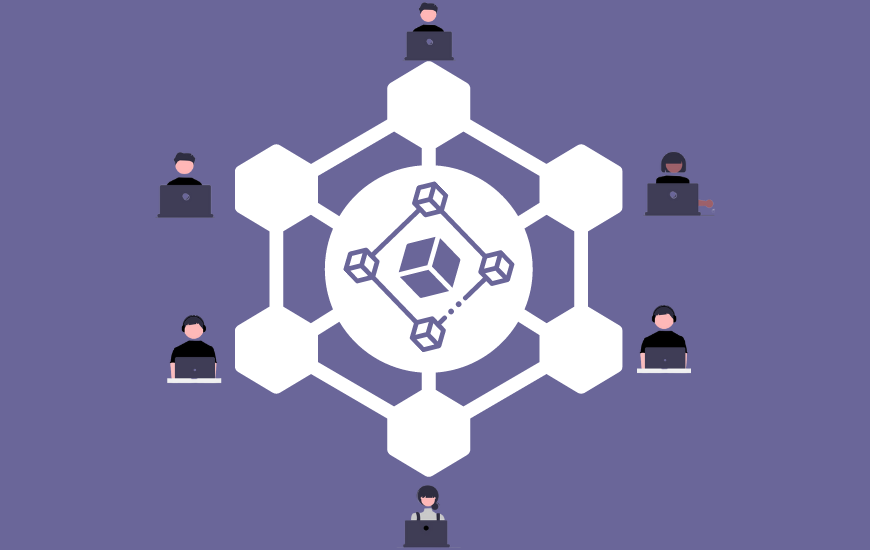
Close

BCoder Castle – Best Software App & Web Design Development Company 2023

Blockchain technology was primarily developed to support the exchange of digital currencies. The educated world quickly understood, however, that blockchain technology can be used to empower enterprises.
Blockchain execution can bring more effectiveness, trust, and straightforwardness into everyday exchanges. As a result, business executives are already organizing crucial projects for their companies. These days, blockchain technology is developing rather quickly across sectors and is being included in the company’s transformation process.
Read through our blockchain developer guide to assist you to get any questions about how to use blockchain technology answered and learn more about the entire development process.
Blockchain technology has been making headlines for years now, and for good reason. The decentralized, secure nature of the technology makes it perfect for a variety of business applications, from supply chain management to digital identity verification. But how can a business actually implement blockchain technology?
The first step in implementing blockchain technology is to identify a specific business problem or opportunity that it can solve. This could be anything from improving transparency and traceability in supply chain management to reducing fraud in financial transactions. Once you have a clear use case in mind, you can begin to explore the different blockchain platforms and technologies that are best suited to your needs.
Creating a valid Proof of Concept (POC) is an important step when implementing blockchain technology in a business. A POC is a prototype or a demonstration that aims to show the feasibility and potential of a specific use case or application of blockchain technology. It is a way to test the technology and validate the business case before committing significant resources to the full implementation.
Creating a POC involves identifying the specific problem or opportunity that the blockchain technology will address, selecting the appropriate blockchain platform and tools, and developing a prototype of the solution. It is important to involve stakeholders from different departments and roles within the organization to ensure that the POC addresses the needs of the business.
Testing the POC is also crucial, it’s important to measure the performance and scalability of the prototype, evaluate its security and compliance, and gather feedback from stakeholders to identify any potential issues or areas for improvement.
When making a careful selection of a blockchain platform for a business, it is important to consider a variety of factors that align with the specific requirements and goals of the project. One of the most important factors to consider is the consensus mechanism used by the blockchain platform.
Another important factor to consider is scalability, as the blockchain platform should be able to handle the expected number of transactions and users. Another key aspect to evaluate is the community and developer support. The blockchain platform should have a strong community of developers and users that can provide support and contribute to the project’s development. Additionally, the blockchain platform should be able to handle the expected load and have the required performance to run the dApp and smart contracts.
Security is another important aspect to consider, the platform should have a good track record of security and it should be regularly audited by third parties. Interoperability is also important, the platform should be able to communicate and interact with other platforms and technologies.

When building a blockchain solution, one important decision to make is choosing the consensus protocol that will be used to validate transactions and maintain the integrity of the blockchain.
A consensus protocol is a set of rules that govern how the network participants reach an agreement on the state of the blockchain. Different consensus protocols have different properties, such as speed, security, and scalability, and different use cases may require different consensus mechanisms.
Proof of Work (PoW) – This is the consensus mechanism used by Bitcoin. This network participants (miners) compete to solve complex mathematical problems, and the first one to solve the problem is rewarded with the right to validate the next block. PoW is highly secure but can be slow and energy-intensive.
Proof of Stake (PoS) – In PoS, network participants (validators) are chosen to validate transactions based on the amount of stake (or ownership) they hold in the network. PoS is faster and more energy-efficient than PoW but is considered less secure.
Delegated Proof of Stake (DPoS) – In DPoS, network participants vote for a small group of validators who are responsible for validating transactions and maintaining the integrity of the blockchain. DPoS is fast and energy-efficient but is considered less decentralized than PoW or PoS.
Practical Byzantine Fault Tolerance (PBFT) – This consensus mechanism is suitable for permissioned blockchain networks. PBFT is a consensus algorithm that uses a leader node to validate transactions and achieve consensus.
RAFT – RAFT is a consensus algorithm designed for distributed systems, it’s similar to PBFT but uses a leaderless approach.
To establish a blockchain ecosystem, it is essential to establish a mutual understanding and trust among the various stakeholders involved. It can be achieved by clearly defining the distribution of rewards and costs, determining the terms of engagement, and establishing a governing mechanism. As the number of stakeholders increases, building a blockchain ecosystem becomes increasingly important to ensure seamless and efficient collaboration.
It is important to establish clear guidelines and regulations to ensure a fair and unbiased distribution of rewards and costs among all parties involved. A well-defined governance mechanism is also crucial to provide oversight and decision-making power to the stakeholders.
Blockchain technology is still relatively new and evolving, and many businesses may lack the technical expertise required to implement it. This can make it difficult to find qualified developers and other experts who have the skills and knowledge needed to build and maintain blockchain-based solutions.
Blockchain networks can become congested as more transactions are added to the chain, leading to delays and increased fees. This can be a significant problem for businesses that need to process a large number of transactions in a short period of time.
Blockchain technology is still not fully regulated and laws and regulations are still evolving, it could be difficult for businesses to ensure compliance with existing laws and regulations.
Blockchain networks are still largely siloed, and it can be difficult to get different blockchain systems to work together. This can limit the potential of blockchain technology to create more efficient and effective business processes.
Blockchain technology is highly secure, but there are still concerns about the potential for hacking and other security breaches. This can be a major concern for businesses that handle sensitive data or financial transactions.
Blockchain is still a new technology and getting people and organizations to adopt it can be a challenge, as people may have a lack of understanding of the technology and its potential benefits.
Blockchain technology has the potential to revolutionize traditional business practices and bring significant benefits to various industries. By using blockchain, businesses can increase trust, reduce duplicated efforts, and achieve greater efficiency. If you’re considering implementing blockchain in your business, it’s important to take the next step and explore the opportunities it offers. Bcoder Castle offers expert blockchain app development services to help you understand how to use blockchain technology and take your business to the next level of automation. By discussing your project idea with us, you can leverage our top-notch blockchain app development services and take your first step toward implementing blockchain technology in your business.

